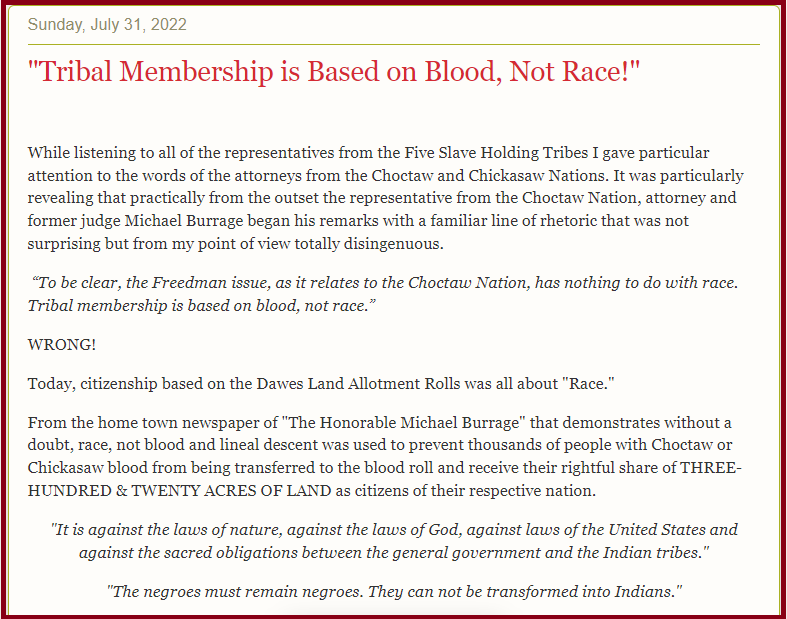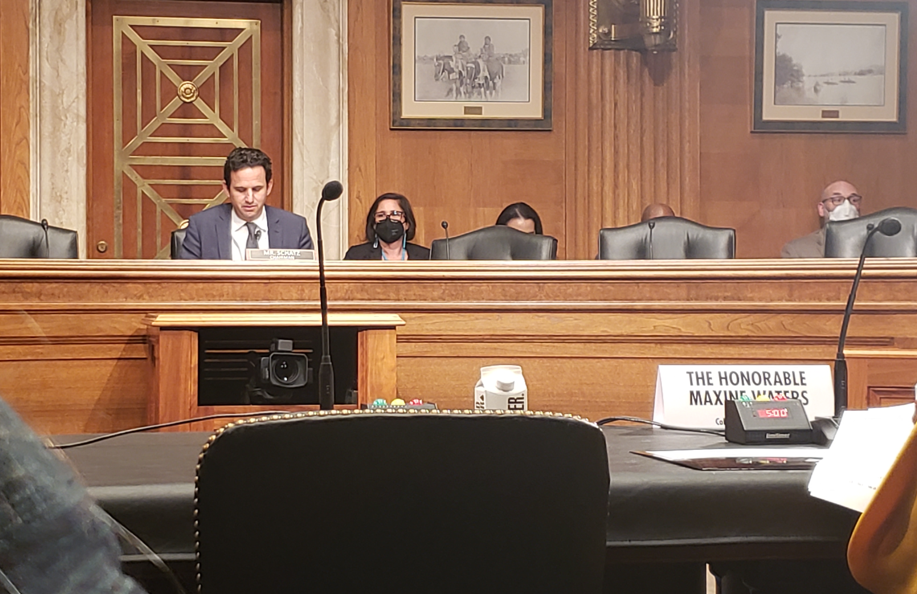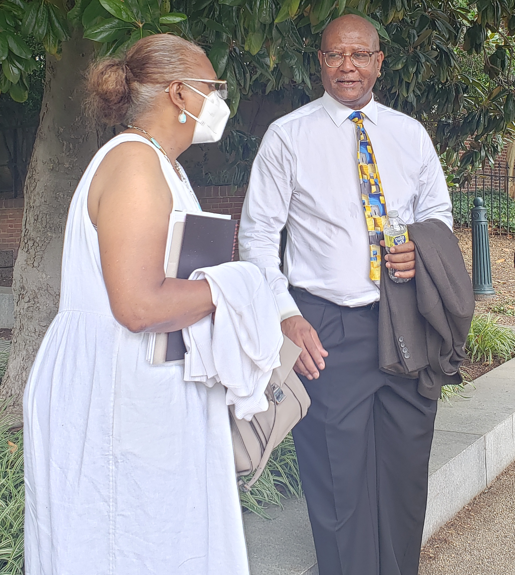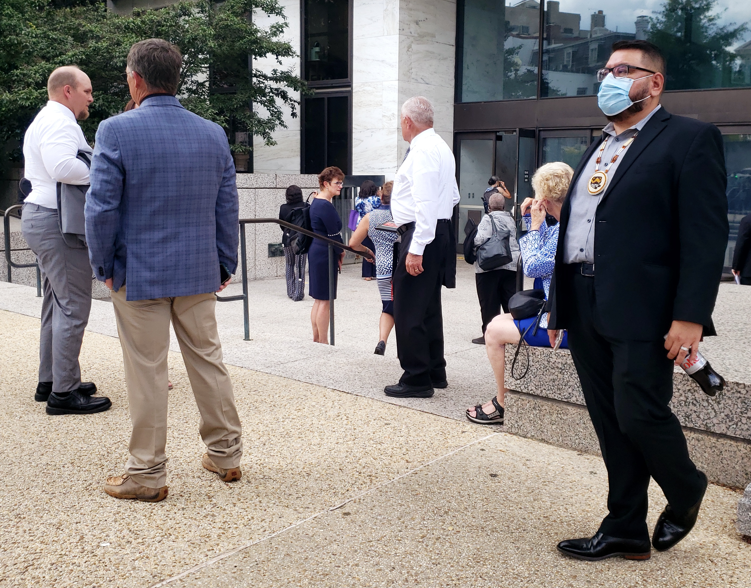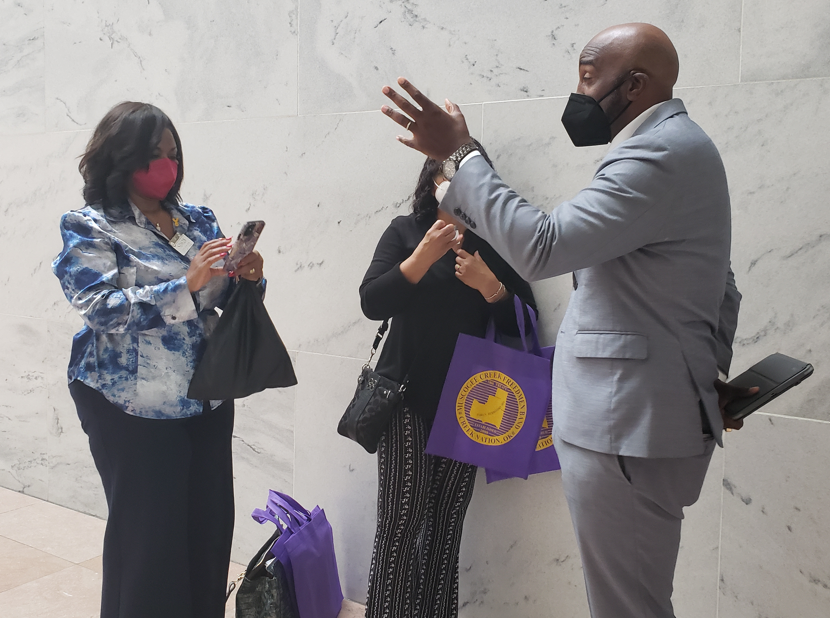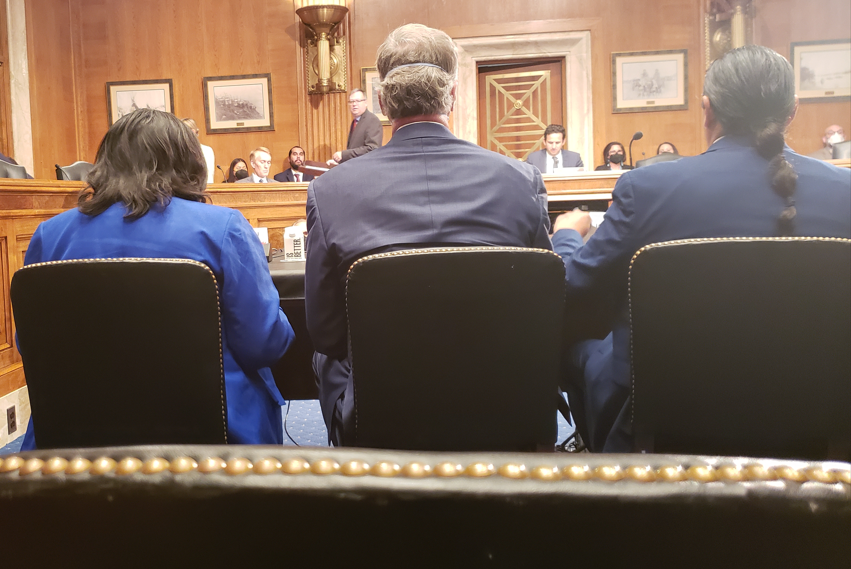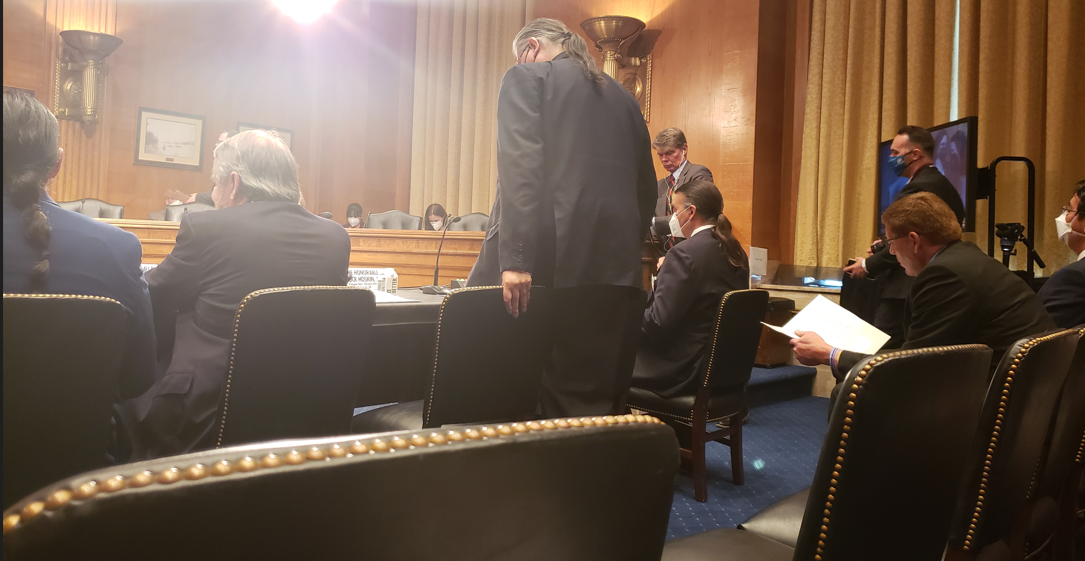Last week's Senate Hearing about the Reconstruction Treaties of 1866, was most revealing, including the official statements by the speakers who made the effort to defend their stand on why they do not provide full citizenship to the descendants of the people who were enslaved in their nation, in their space, and in their families.
On his blog, Terry Ligon shared a poignant article from 1910 about the pushback against Freedmen wishing to be transferred to the rolls by blood, because they had Indian fathers. He included quotes from the article including one critical statement:
"The negroes must remain negroes. They can not be transformed into Indians."
That is clearly a statement about race, and no matter what today's spin from Durant says---it has to be stated---this is ALL about race.
One can only wonder if that is the reason why Chief Batton, who reached out to the Freedmen a year ago, chose not to attend the hearing this year. Tribal lawyers have advised people in the nation to not enage with Freedmen who reach out and who make calls in response to his open letter. Yet, no descendants of Freedmen are enemies of the Nation from which they claim identity. So why is engagement now not possible?
As stated before, there appears to be a fear that somehow the presence of fear of people of African descent in significant numbers will somehow lessen their "appearance" as an Indian Tribe. Yet---both Choctaw and Chickasaw Nations that signed the same treaty together claim to be sovereign nations.
It should be pointed out that one characteristic that all sovereign nations have--is that they exist as a political structure of multiple people from numerous families, clans, and communities who share something in common----history, space, longevity, language, and continuous contact. Freedmen had that and those still in Oklahoma still have that.
In addition-----the treaties of 1866 do NOT use the word "blood". But today, and every day since 1983, when the constitution was quietly changed----the use of the word "blood" swas inserted into the tribal discourse, which is a word that stirs up emotion and creates a false illusion that somehow families being threatened or put in danger. And furthermore the continuous insistance of blood being the bottom line, suggests to the public and that tribal sovereignty is being threatened by decendants of former African slaves in their midst.
This continuous "this-is-about-blood cry," and thefear of African Choctaws, is quite similar to such statements that were often made by the "gentle" southern people of the old racist south that truly believed that being in the mere space of people with brown and black skin did them physical harm. This in their minds justified laws posed against them, and acts of violence agains them without punishment.
Is this what the sentiments are in the Choctaw Nation? Truly? Is the fear of Freedmen descendants the security blanket that justifies in your mind the act of preventing them from being in your space---but they have always been in your space?
To the Honorable Chief Batton, and Mr. Burrage: What actual threat do Freedmen descendants in your space pose to the nation?
*What harm did those who were freed from bondage do to the nation that they claimed as theirs also?
*When people "by blood" were given 8 times more land than the Freedmen, how did their disadvantage placed upon the Freedmen threaten the sovereignty of the Choctaw Nation?
*When 254 different families followed the steps of Bettie Ligon and Joe & Dillard Perry seeking to be placed on the blood rollm how were the Choctaw people harmed and how did these Freed people threaten the nation or its sovereignty?
*When people were identified as Choctaw Freedmen and not freedmen people of any other of the 274 Federally recognized tribes----how can you look at their descendants in the eye, and declare openly that they are not among a popultion of Choctaw people? They were once Choctaw slaves, and then Choctaw Freedmen, so how can one say that they were not Choctaw people? What is in this race based that can makes you comfortable in doing this?
*Is THIS how a sovereign nation conducts itself?
* What is the real threat to the sovereignty of the Choctaw Nation?
There is no threat to sovereignty, BUT---the real threat is public sympathy towards the nation. The threat is that the image of an oppressed people forced from their homeland to an unfamiliar land will be tarnished.
However, this universal sympathy is tainted somewhat when the history is told of an oppressed people, dragged enslaved people of another race with them. The sympathy is lessed, when others learn how teh nation has a continuing policy of keeping distance from the descendants of the freed people.
And furthermore, public sympathy is affected when the stories of not only enslavement of people of another race, but the choice to fight for the south in the Civil War.
But note Note that when the Civil War ended, and the United made former slaves citizens---there was NEVER a clause in the 14th amendment that they had to have the blood of white people to become American citizens. Yet----today the Choctaw Nation states that descendants of enslaved Africans, to become citizens, must contain the blood of the tribe that enslaved them.
African slaves arrived in the Territory with Choctaws, on the same forced migration. They worked as enslaved laborers for generations in the Choctaw Nation with no pay since they were human chattel. After Freedom came, the Choctaw Freedmen waited a full 19 years before the act to give them citizenship occurred, although the treaty said they would give citizenship within two years.
It must be said:
-The United States became a better nation when slavery was abolished.
-The United States became an even better nation when the 1964 Civil Rights act was passed erasing Jim Crow.
-The Cherokee Nation became a better nation when it was decided to embrace the decision of 2017.
-The Cherokee Nation has become a better nation with almost 12,000 Cherokee people once disenfranchised Freedmen descendants have been admitted.
To bring about change going forward, here are some suggestions:
-A simple admission that these policies are all about race is an honest beginning.
-Allowing Chief Batton to continue to explore the initiative that he state in his Open Letter of 2021 is a beginning.
-The establishment of opportunities of contact between Freedmen and tribal council members is a beginning.
We are not the enemy. We live our lives with a strong identity as a Choctaw population in spite of what is said.
The opportunity to make the Choctaw Nation an even greater nation awaits. Today it is simply a Federally recognized tribe that is choosing to stand behind a blanket of fear, and calling it "sovereignty". This does not make the Choctaw Nation as strong as it can be. Embracing race-based policies that alienate people in your space, who have a documented historic tie to you, does not make you sovereign and it does not make you strong.
It weakens you and places you in the same space of the old segregationists of the Old South during the Jim Crow era. They were not honorable people. They lived in senseless fear of people whom they had also oppressed. Those states are now better since those policies are gone. They are not perfect, but they are so much better than they were.
At last week's hearing Cherokee Chief Hoskins was comfortable as he mixed and interacted with Freedmen from all of the Five Tribes before and after the hearing. No such comfort or interaction came from representatives of Choctaw or Chickasaw Nations. They kept their distance, interacting only with those with whom they were comfortable---those who were not black.
Sometimes simply addressing those issues and facts that give you fear, can also make you free and allow you to move freely in all spaces where you find yourself.
Today's policies are about Race.
Simple admission of this fact can allow the blanket of fear to unwrap itself from around you, and allow you the freedom to return the handshake that is still extended to you.
We are among the Choctaw Proud.
Yakoke.
